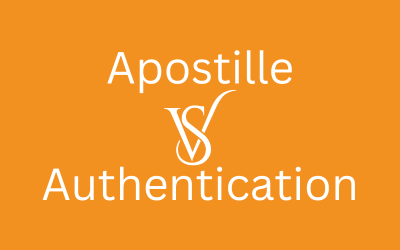Because some corporations must hold annual meetings and draft annual meeting minutes for satisfying their business compliance responsibilities, it’s important to know if this requirement applies to your company.
What should you know about them? What do they include? Must Limited Liability Companies (LLCs) hold an annual meeting and prepare minutes, too?
These are just a few of the questions you might be wondering about. Let’s dig into this topic so that you’ll have a basic understanding of what you might need to consider in keeping your business in good standing with your state. To make sure you fully understand the rules that you must follow, I recommend consulting an attorney for guidance. What I’m going to share here is not intended as legal advice.
What Is an Annual Meeting?
All corporations (corporations that elect for S Corporation tax treatment included) in the United States must hold an annual meeting. Alternative names for that meeting include annual shareholder meeting, annual stockholder meeting, and annual general meeting (or AGM, for short).
Most corporations hold their annual meeting soon after the company’s fiscal year has ended, at a time and location outlined in the corporate bylaws. Bylaws also usually establish how notice of annual meetings will be given, the order of business that should be followed, and the quorum (minimum number of shareholders present) to hold a vote at meetings.
At an annual meeting, information is communicated, and various activities take place. For example:
- Sharing the status of the organization (usually the company CEO or president will do this)
- Appointing members to the Board of Directors
- Voting on initiatives and transactions that require shareholder approval
- Reviewing financial information
- Allowing shareholders to ask questions about the direction of the business
What Are Annual Meeting Minutes?
Corporate annual meeting minutes serve as a record of a business’s annual meeting. Most states— except for Delaware, Kansas, Nevada, North Dakota, and Oklahoma—require corporations to keep meeting minutes (this applies to the Board of Directors meetings, too). During an annual meeting, the company’s corporate secretary takes detailed notes to capture everything that was discussed and decided upon during the meeting.
Examples of the information that might appear in a corporation’s annual meeting minutes include:
- Date, time, and location of the meeting
- Who attended and who was absent from the meeting
- Meeting agenda items with a brief description of each
- Details about what was discussed during the meeting
- Results of any voting actions taken
- The time when the meeting adjourned
States don’t require LLCs to hold annual meetings and draft minutes. However, an LLC’s Operating Agreement might have language that makes them mandatory for the company. If an LLC’s members have included an annual meeting requirement in their LLC Operating Agreement, but later decide they’re unnecessary or cumbersome, they can amend that document to exclude that provision.
To make the process of drafting minutes easier, consider having a basic format that you can follow to establish and maintain consistency each year. The less painstaking creating minutes is, the more likely you will be to follow through on your obligation. You can find many samples of annual shareholder meeting minutes and corporate meeting templates online.
After annual meeting minutes have been approved (as determined by the company’s bylaws), a business should keep the original executed copy in a safe place along with other corporate records such as bylaws, Articles of Incorporation, and resolutions. A business should keep its minutes for at least seven years, and make them available to members of the corporation (e.g., shareholders, directors, and officers) who make a reasonable request to review them. There is no requirement to file annual stockholder meeting minutes with the state or other government agencies.
What if You Don’t Draft Minutes?
Annual meeting minutes for corporations are one of the important business compliance requirements that keep a company’s corporate veil (legal and financial separation of a business and its owners) intact. Although commingling personal and business assets and being involved in fraudulent activities are what courts typically consider when deciding if the corporate veil has been pierced, failing to fulfill company formalities (such as holding annual meetings and recording minutes) can also be a deciding factor.
There are two main reasons to abide by the rules to sustain the corporate veil:
- Maintain Personal Liability Protection of Shareholders – If a corporation doesn’t draft its meeting minutes as required, it could jeopardize its status of being a separate legal entity. That means a court, taxing authorities, and others might be able to hold the business owners and directors personally responsible for the actions and financial debt of the company. So, for example, if someone brings a lawsuit against the organization, the corporation’s owners could be named in the suit and find their savings account, retirement savings, home, cars, and other personal assets could be at risk of being taken as damages if the decision is in favor of the plaintiff(s).
- Maintain a Favorable Tax Rate – Another way piercing the corporate veil by failing to keep annual meeting minutes in a business’s corporate records can hurt its owners is that the IRS could consider shareholders to be operating as a partnership or as individuals rather than a corporation. As such, it might impose an individual tax rate, which might be higher than the corporate tax rate, on the owners.
Keep in mind that a corporation’s bylaws might address other meetings that may also require meeting minutes. Examples include the Board of Directors meetings, committee meetings, and special meetings to discuss important business or decisions that will affect the corporation profoundly.
Need to Draft Meeting Minutes?
Don’t want to worry about drafting these documents? Don’t worry! CorpNet can create customized annual meeting minutes for you.




